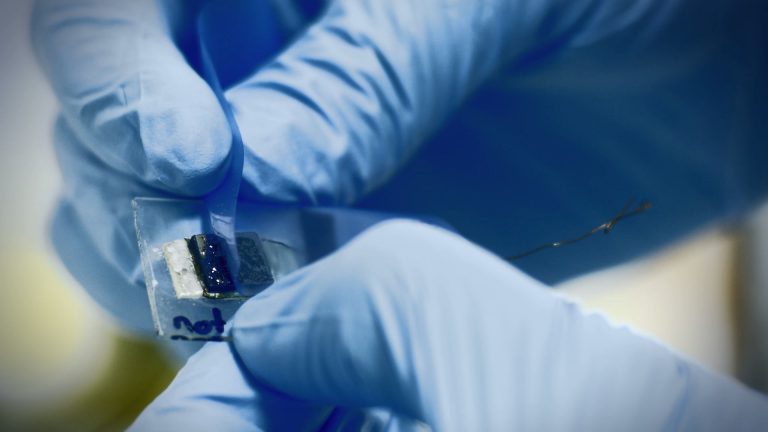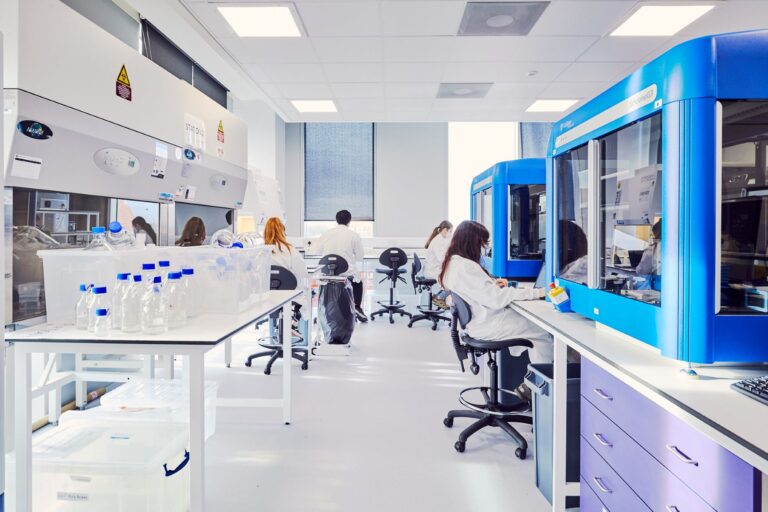
Manchester is leading the 2D revolution and home to the UK’s leading research and innovation association of advanced materials.


In this week’s Autumn Statement, the Chancellor of the Exchequer, Jeremy Hunt announced a new Investment Zone for Greater Manchester which is expected to generate 32,000 jobs and leverage £1.1 billion of private sector investment.
The Investment Zone will provide £160 million in public funding over 10 years to support initiatives and interventions agreed between Greater Manchester and Government, which will include new research and innovation, sector-focussed skills programmes, local infrastructure enhancements, and targeted business support.
The package will support the Oxford Road Corridor’s established strengths including the University of Manchester, Manchester Metropolitan University and ID Manchester, with a focus on the advanced materials and manufacturing sector. As well as building on longer-term ambitions to be able to scale up and deploy innovations in growth businesses.
Cllr Bev Craig, Leader of Manchester City Council and Greater Manchester Lead for Economy, Business, and Inclusive Growth, said: “Greater Manchester has an attractive proposition, with world-leading advanced manufacturing and materials research at our universities, a strong skills base, and an existing ecosystem of innovative companies.
“The Investment Zone will build on that cluster, linking and investing in different sites across the city-region, and helping us translate research and development and new discoveries into business growth.”
Professor Richard Jones, Vice-President for Regional Innovation and Civic Engagement at The University of Manchester, said: “The University of Manchester has been at the forefront of research in advanced materials and manufacturing, from the industrial revolution to the discovery of graphene, and we have a strong culture of innovation which builds on that research to create economic benefit. This announcement gives further impetus to the work we do with our partners in business and the city-region, to improve people’s lives through economic growth and improved productivity throughout Greater Manchester.”
Professor Nick Brook, Pro-Vice-Chancellor for Research at Manchester Metropolitan University, said: “This is an exciting development for Manchester and the city, building on its existing strengths and nurturing new opportunities in advanced materials and manufacturing.
“We have a rich history in supporting innovation and business growth across the region, and the Investment Zone is a natural next step for the city region and the University in ensuring Manchester remains at the forefront of research and development – and creating new job opportunities.”
Speaking on behalf of ID Manchester, a joint venture between Bruntwood SciTech and The University of Manchester, John Holden, Associate Vice-President at The University of Manchester, said: “We’re delighted that ID Manchester will be part of the Greater Manchester Investment Zone plans to put the region at the forefront of advanced materials and manufacturing innovation in the UK and globally. The ecosystem we’re building at ID Manchester will leverage The University of Manchester’s world-class R&D strengths to help scale and commercialise new ideas, driving new jobs across the city region in future-facing industries. We look forward to working closely with our neighbouring centres of innovation in Greater Manchester to create valuable new opportunities for local residents and businesses across the North.”

Manchester is leading the 2D revolution and home to the UK’s leading research and innovation association of advanced materials.

Oxford Road Corridor is home to one of the largest clinical academic campuses in Europe, attracting clinicians, students and researchers from around the world.

The availability of digital talent generated by the two universities on the Oxford Road Corridor is a major factor in the city region’s success in attracting inward investment and growing new digital firms.